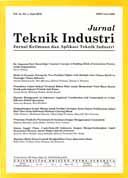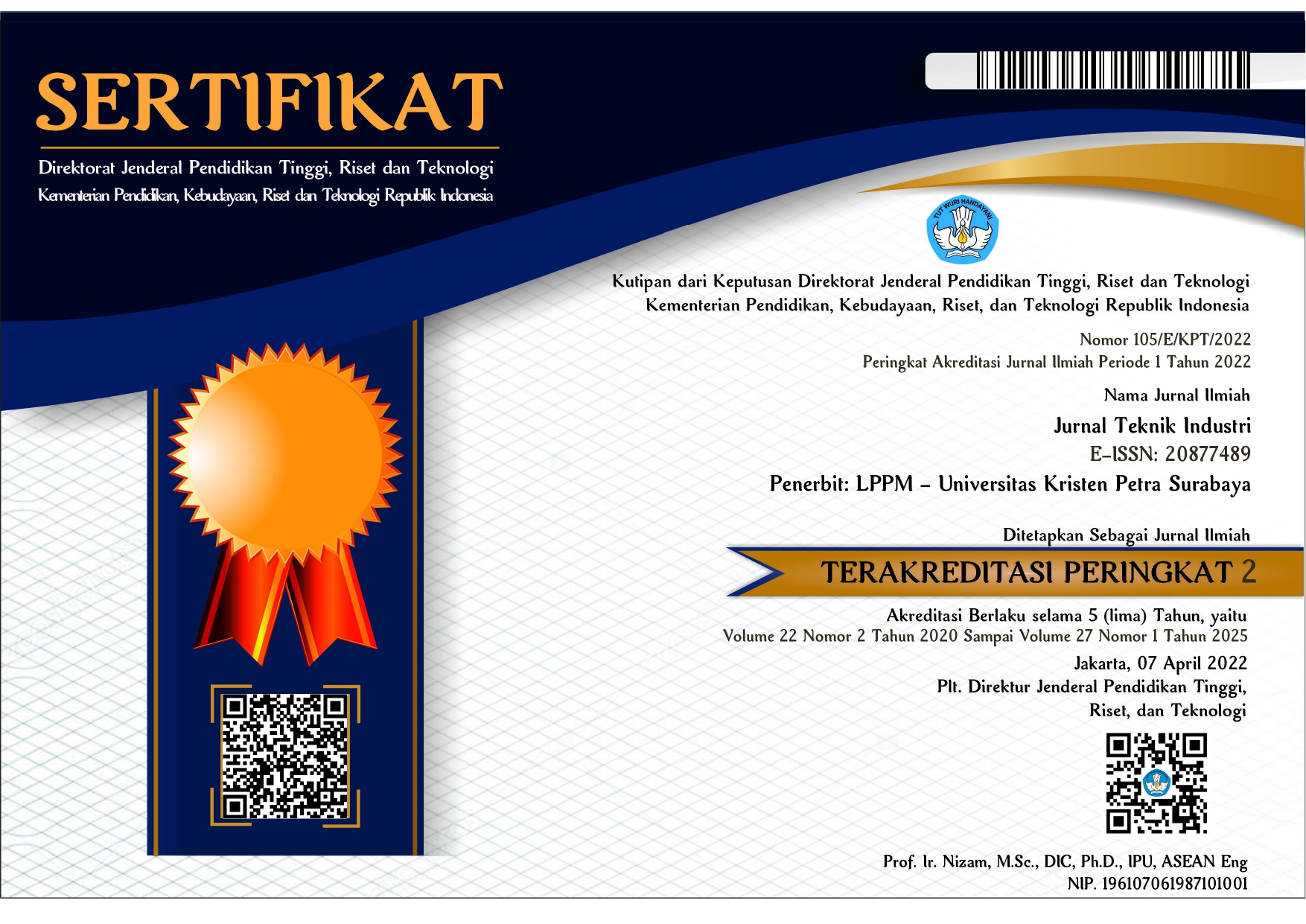Application of Ensemble Empirical Mode Decomposition based Support Vector Regression Model for Wind Power Prediction
DOI:
https://doi.org/10.9744/jti.22.1.11-16Keywords:
Data Mining, Time Series, Prediction, Renewable, EnergyAbstract
Improving accuracy of wind power prediction is important to maintain power system stability. However, wind power prediction is difficult due to randomness and high volatility characteristics. This study applies a hybrid algorithm that combines ensemble empirical mode decomposition (EEMD) and support vector regression (SVR) to develop a prediction model for wind power prediction. Ensemble empirical mode decomposition is employed to decompose original data into several Intrinsic Mode Functions (IMF). Finally, a prediction model using support vector regression is built for each IMF individually, and the prediction result of all IMFs is combined to obtain an aggregated output of wind power Numerical testing demonstrated that the proposed method can accurately predict the wind power in Belgian.
Downloads
References
Ohlenforst, K. and G.W.E. Council, Global Wind Report 2018. 2019, Recuperado.
Erdem, E. and J. Shi, ARMA based approaches for forecasting the tuple of wind speed and direction. Applied Energy, 2011. 88(4): p. 1405-1414.
Li, G. and J. Shi, On comparing three artificial neural networks for wind speed forecasting. Applied Energy, 2010. 87(7): p. 2313-2320.
Zhou, J., J. Shi, and G. Li, Fine tuning support vector machines for short-term wind speed forecasting. Energy Conversion and Management, 2011. 52(4): p. 1990-1998.
Liu, H., et al., Forecasting models for wind speed using wavelet, wavelet packet, time series and Artificial Neural Networks. Applied Energy, 2013. 107: p. 191-208.
Huang, N.E., et al., The empirical mode decomposition and the Hilbert spectrum for nonlinear and non-stationary time series analysis. Proceedings of the Royal Society of London. Series A: mathematical, physical and engineering sciences, 1998. 454(1971): p. 903-995.
Zhang, W., et al. A hybrid EMD-SVM based short-term wind power forecasting model. in 2015 IEEE PES Asia-Pacific Power and Energy Engineering Conference (APPEEC). 2015. IEEE.
Wu, Z. and N.E. Huang, Ensemble empirical mode decomposition: a noise-assisted data analysis method. Advances in adaptive data analysis, 2009. 1(01): p. 1-41.
Smola, A.J. and B. Schölkopf, A tutorial on support vector regression. Statistics and computing, 2004. 14(3): p. 199-222.
Maheshwari, S. and A. Kumar, Empirical Mode Decomposition: Theory & Applications. International Journal of Electronic Engineering, 2014: p. 873-878.
Helske, J. and P. Luukko, Rlibeemd: ensemble empirical mode decomposition (EEMD) and its complete variant (CEEMDAN). R package version, 2017. 1(0).
Meyer, D., et al., e1071: misc functions of the department of statistics, probability theory group (formerly: E1071), TU Wien. R package version 1.6-8. 2017
Elia, N.: " Wind-Power Generation Data.” Available: www.elia.be/en/grid-data/power-generation/wind-power
Downloads
Published
How to Cite
Issue
Section
License
Articles published in the Jurnal Teknik Industri: Jurnal Keilmuan dan Aplikasi Teknik Industri will be Open-Access articles distributed under the terms and conditions of the Creative Commons Attribution License (CC BY).
![]()
This work is licensed under a Creative Commons Attribution License (CC BY).



















